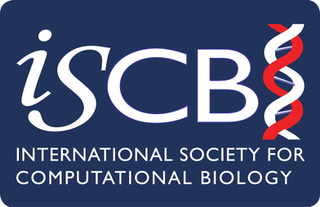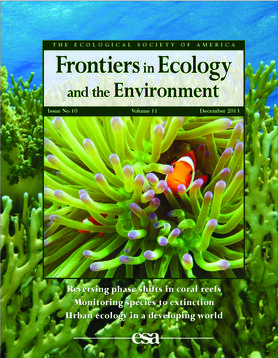Related Research Articles
A public health journal is a scientific journal devoted to the field of public health, including epidemiology, biostatistics, and health care. Public health journals, like most scientific journals, are peer-reviewed. Public health journals are commonly published by health organizations and societies, such as the Bulletin of the World Health Organization or the Journal of Epidemiology and Community Health. Many others are published by a handful of large publishing corporations that includes Elsevier, Wolters Kluwer, Wiley-Blackwell, Springer Science+Business Media, and Informa, each of which has many imprints. Many societies partner with such corporations to handle the work of producing their journals.

The MIT Press is a university press affiliated with the Massachusetts Institute of Technology (MIT) in Cambridge, Massachusetts. It was established in 1962.

The Acoustical Society of America (ASA) is an international scientific society founded in 1929 dedicated to generating, disseminating and promoting the knowledge of acoustics and its practical applications. The Society is primarily a voluntary organization of about 7500 members and attracts the interest, commitment, and service of many professionals.

Cell is a peer-reviewed scientific journal publishing research papers across a broad range of disciplines within the life sciences. Areas covered include molecular biology, cell biology, systems biology, stem cells, developmental biology, genetics and genomics, proteomics, cancer research, immunology, neuroscience, structural biology, microbiology, virology, physiology, biophysics, and computational biology. The journal was established in 1974 by Benjamin Lewin and is published twice monthly by Cell Press, an imprint of Elsevier.
PLOS Computational Biology is a monthly peer-reviewed open access scientific journal covering computational biology. It was established in 2005 by the Public Library of Science in association with the International Society for Computational Biology (ISCB) in the same format as the previously established PLOS Biology and PLOS Medicine. The founding editor-in-chief was Philip Bourne and the current ones are Feilim Mac Gabhann and Jason Papin.

The American Society for Biochemistry and Molecular Biology (ASBMB) is a learned society that was founded on December 26, 1906, at a meeting organized by John Jacob Abel. The roots of the society were in the American Physiological Society, which had been formed some 20 years earlier. ASBMB is the US member of the International Union of Biochemistry and Molecular Biology.

Studies in Ethnicity and Nationalism (SEN), formerly The ASEN Bulletin, is a scholarly interdisciplinary peer-reviewed academic journal covering research on ethnicity and nationalism. It is published biannually on behalf of the Association for the Study of Ethnicity and Nationalism, by Wiley-Blackwell. The journal covers a wide range of topics, including the sources and nature of ethnic identity, minority rights, migration and identity politics - topics which remain central to the modern world. The journal approaches the complexity of these questions from a contemporary perspective and, based on the latest scholarship, draws on a range of disciplines including political science, sociology, anthropology, economics, international relations, history and cultural studies. The journal is indexed in the Web of Science Emerging Sources Citation Index (ESCI), has 0.73 Scopus CiteScore (2018), and ranks 487 out of 1,111 journals in Sociology and Political Science.

The International Society for Computational Biology (ISCB) is a scholarly society for researchers in computational biology and bioinformatics. The society was founded in 1997 to provide a stable financial home for the Intelligent Systems for Molecular Biology (ISMB) conference and has grown to become a larger society working towards advancing understanding of living systems through computation and for communicating scientific advances worldwide.
The American Physiological Society is a non-profit professional society for physiologists. It has nearly 10,000 members, most of whom hold doctoral degrees in medicine, physiology or other health professions. Its mission is to support research and education in the physiological sciences. The society publishes 16 peer reviewed journals, sponsors scientific conferences, and sponsors awards to further this mission.
The Journal of Biological Systems was founded in 1993 and is published quarterly by World Scientific.

Astronomy & Geophysics (A&G) is a scientific journal and trade magazine published on behalf of the Royal Astronomical Society (RAS) by Oxford University Press. It publishes a mixture of content of interest to astronomers and geophysicists: news reports, interviews, topical reviews, historical investigations, obituaries, meeting reports and updates on the activities of the RAS. Full-length articles are peer reviewed.

Journal of Zoological Systematics and Evolutionary Research is a quarterly, peer reviewed, scientific journal, published by Wiley-Blackwell. It was originally established in 1963, then reestablished in 1994 by John Wiley & Sons. The editor in chief is Dr. Wilfried Westheide. According to Journal Citation Reports, the 2016 impact factor for this journal is 2.444.
Language and Linguistics Compass is an online peer-reviewed linguistics journal established by Blackwell Publishers in 2006. One of eight Compass journals, Language and Linguistics Compass publishes state-of-the-art review articles aimed at an international readership. The target audience includes academic researchers, postgraduates students and advanced undergraduates. The editors-in-chief are Edwin Battistella and Natalie Schilling.

Frontiers in Ecology and the Environment is a peer-reviewed scientific journal issued ten times per year, and consists of peer-reviewed, synthetic review articles on all aspects of ecology, the environment, and related disciplines, as well as short, high-impact research communications of broad interdisciplinary appeal. Additional features include editorials, commentaries, a letters section, Life Lines, job ads, and special columns. It is published by Wiley-Blackwell on behalf of the Ecological Society of America (ESA). According to the Journal Citation Reports, the journal has a 2021 impact factor of 13.780, ranking it eleventh out of 279 journals in the category "Environmental Sciences" and fourth out of 174 journals in the category "Ecology".

Wiley Interdisciplinary Reviews: Cognitive Science is a bimonthly peer-reviewed scientific journal covering cognitive science. The journal was established in 2010 and is published by John Wiley & Sons as a member of its Wiley Interdisciplinary Reviews series. Submissions are by invitation only and focus on research areas at the interfaces of the traditional disciplines. Coverage aims to provide an encyclopedic coverage of the field. The journal does not publish original research papers, but "Editorial Commentaries", "Opinions", "Overviews", "Advanced Reviews", and "Focus Articles".
Biotropica is a peer-reviewed scientific journal published by Wiley-Blackwell on behalf of the Association for Tropical Biology & Conservation. The journal publishes articles describing original research on the ecology, conservation and management of tropical ecosystems and on the evolution, behavior, and population biology of tropical organisms. According to the Journal Citation Reports, the journal has a 2018 impact factor of 2.989.
Wiley Interdisciplinary Reviews: Computational Statistics is a review journal for computational and statistical techniques in the sciences, from the perspectives of both computation and statistics. It contain both tutorial reviews and advanced reviews, as well as opinion pieces and commentaries.

Hadley Alexander Wickham is a statistician from New Zealand and Chief Scientist at Posit, PBC and an adjunct Professor of statistics at the University of Auckland, Stanford University, and Rice University. He is best known for his development of open-source software for the R statistical programming language for data visualisation, including ggplot2, and other tidyverse packages, which support a tidy data approach to data science.
Cognitive biology is an emerging science that regards natural cognition as a biological function. It is based on the theoretical assumption that every organism—whether a single cell or multicellular—is continually engaged in systematic acts of cognition coupled with intentional behaviors, i.e., a sensory-motor coupling. That is to say, if an organism can sense stimuli in its environment and respond accordingly, it is cognitive. Any explanation of how natural cognition may manifest in an organism is constrained by the biological conditions in which its genes survive from one generation to the next. And since by Darwinian theory the species of every organism is evolving from a common root, three further elements of cognitive biology are required: (i) the study of cognition in one species of organism is useful, through contrast and comparison, to the study of another species’ cognitive abilities; (ii) it is useful to proceed from organisms with simpler to those with more complex cognitive systems, and (iii) the greater the number and variety of species studied in this regard, the more we understand the nature of cognition.
Wiley Interdisciplinary Reviews: Systems Biology and Medicine is a bimonthly peer-reviewed interdisciplinary scientific review journal covering systems biology and medicine. It was established in 2009 and is published by John Wiley & Sons as part of its Wiley Interdisciplinary Reviews journal series. The editors-in-chief are Joseph H. Nadeau and Shankar Subramaniam (University of California, San Diego). According to the Journal Citation Reports, the journal has a 2020 impact factor of 5.000, ranking it 48th out of 140 journals in the category "Medicine, Research & Experimental".
References
- ↑ "Wiley: WIREs Win Three Prizes at the PROSE Awards". www.wiley.com (Press release). Wiley-Blackwell. 2010-02-05. Retrieved 2018-06-14.
- ↑ "About WIREs". WIREs Home. Wiley-Blackwell. Retrieved 2018-06-14.
- ↑ "2009 Award Winners".